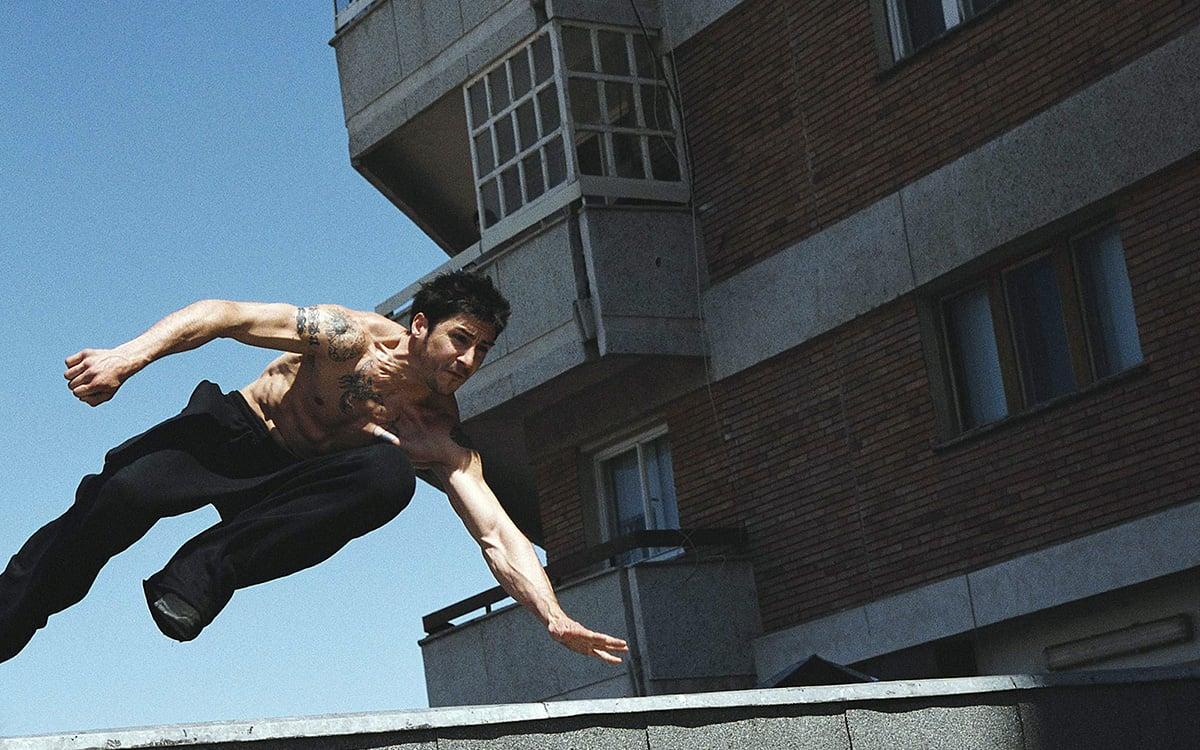District B13 by Pierre Morel (Review)

One of the downfalls of having so much information concerning upcoming movie releases, especially foreign movie releases, at your fingertips (due to the likes of YouTube) is that it’s entirely possible to see all of the good parts of a movie before you even pop the DVD in your player. That’s how I felt at first with District B-13 (aka Banlieue 13). However, to its credit, the movie actually turns out to be a little more than I thought it might be.
Don’t get me wrong — District B-13 is still, first and foremost, a high-octane action movie. The setting is Paris in the year 2010. Crime has become so rampant that the government has resorted to walling off entire sections of the city. The worst of these is B13, which is ruled by a ruthless gangster who has somehow come into possession of a nuclear warhead that he intends to use against the rest of the city.
Enter the two buddies: One’s a by-the-books police officer with one helluva roundhouse kick; the other’s a former citizen of B13 who has been selected to lead the other through B13 to defuse the bomb. As you might suspect, the two hit it off right from the start. Or maybe not. While the cliches are pretty obvious, as are the movie references — Escape From New York, Lethal Weapon — the movie’s action sequences inject a whole new sort of thrill into the proceedings.
Of course, it helps when one of your leads is a bonafide martial arts expert who has squared off against the likes of Jet Li and the other is one of the inventors of “parkour,” a sort of martial arts/acrobatic regimen for urban environments.
Using very little CGI or wirework, the stunts and fights scenes have an edge and brutality that you just don’t see everyday, and the men scale buildings and fly across rooftops in a manner that makes Superman look clumsy by comparison.
There are a few unbelievable plot and character twists, but for the most part, the film keeps things lean and mean, becoming much greater than the sum of its parts. And all of the business about ghettos and government indifference feels strikingly relevant given all of the urban unrest that France has experienced in recent years, which adds an interesting layer of subtext to the film.